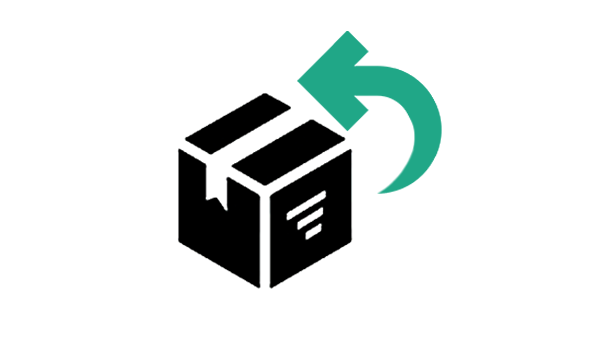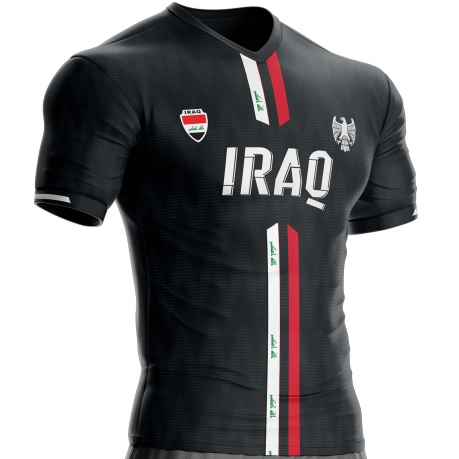Top 10 highest salaries of Iraqi players

Iraqi football: land of talent and success
Football in Iraq is much more than just a sport. It is a true passion that unites people and transcends divisions. The country has a long and rich footballing history, punctuated by moments of glory and intense emotions.
On the international scene, Iraqi players demonstrate remarkable talent and combativeness. The national team won the Asian Cup in 2007, a historic feat that left its mark and galvanized the nation.
The success of Iraqi players is not limited to the Asian continent. Many talents play today in prestigious foreign clubs, thus contributing to the reputation of Iraqi football and inspiring the new generation.
This article aims to lift the veil on an often overlooked aspect of Iraqi football: player salaries. How much do Iraqi football stars really earn? What are the factors that influence their remuneration ?
By exploring these questions, we hope to shed light on the economics of football in Iraq and highlight the inspiring journey of these athletes who bring excitement to their entire country.
The complex workings of the remuneration of Iraqi players
Determining the salary of an Iraqi football player is no easy task. Various elements, sometimes interdependent, come into play to set the value of a player on the transfer market and influence their remuneration.
Player performance remains the main criterion. The more efficient and consistent a player is on the field, the higher his rating rises and the more he can claim a high salary.
Player's track record is also an important element. A player who has won titles and individual accolades will have a higher market value than a less experienced player.
The employer club also plays a crucial role. The richest and most prestigious clubs in Iraq, such as Al-Shorta or Al-Zawraa, are able to offer higher salaries than less well-off clubs.
Player popularity cannot be ignored. A charismatic player adored by supporters can be an important marketing asset for a club and influence its salary upwards.
Player age is a factor to take into account. A talented and promising young player can see his salary increase quickly based on his potential.
Finally, economic conditions in Iraq also impact the transfer market and player salaries. A favorable economic situation can encourage clubs to invest more in recruiting talented players.
By adding these different factors, it is possible to establish an approximate hierarchy of the highest paid Iraqi players.
However, it is important to emphasize that salary information is often confidential. The estimates cited in this article come from reliable sources in the Iraqi football community, but cannot be 100% guaranteed.
Soon, we will reveal to you the top 10 (potential) Iraqi players who receive the highest salaries. Until then, don't hesitate to share your predictions in the comments !
Top 10 (potential) highest paid Iraqi players
1. Alaa Abbas (Goalkeeper) - Al-Shorta - 1.5 million euros
Considered one of the best goalkeepers on the Asian continent, Alaa Abbas is a pillar of the Iraqi national team. His career is marked by success, including victory in the Asian Cup in 2007.
2. Ali Adnan (Defender) - Vancouver Whitecaps - 1.2 million euros
A true metronome of the Iraqi defense, Ali Adnan stood out for his technique and his vision of the game. He notably played in the Italian Serie A with Udinese Calcio.
3. Ahmed Yasin (Midfielder) - Al-Ahly Tripoli - 1 million euros
Captain of the national team, Ahmed Yasin is an experienced and talented player. Endowed with a powerful strike and great game intelligence, he is an essential element of the Iraqi system.
4. Mohanad Ali (Midfielder) - Al-Shorta - 1 million euros
A talented and promising young player, Mohanad Ali has already made an impression with his dribbling and his vision. He is considered one of the great hopes of Iraqi football.
5. Amjad Attwan (Striker) - Al-Quwa Al-Jawiya - 900,000 euros
A powerful and skillful attacker, Amjad Attwan is a real surface fox. He has scored many important goals for the national team, including a brace in the 2007 Asian Cup.
6. Sherko Karim (Striker) - Ferencváros - 800,000 euros
A true globetrotter, Sherko Karim has played in several European championships. His speed and technique make him a formidable attacker.
7. Hussein Ali (Striker) - Al-Duhail - 700,000 euros
Young hopeful of Iraqi football, Hussein Ali has already proven himself for club and national team. His speed and sense of goal make him a very promising striker.
8. Mustafa Nadhim (Midfielder) - Al-Zawraa - 600,000 euros
A combative and intelligent midfielder, Mustafa Nadhim is a valuable element for the national team. His grinta and his leadership are important assets for the collective.
9. Ibrahim Bayesh (Defender) - Al-Shorta - 500,000 euros
A solid and rigorous defender, Ibrahim Bayesh is an important element of the Iraqi defense. His power and sense of placement make him a formidable opponent.
10. Faraj Ayed (Midfielder) - Al-Karkh - 500,000 euros
A technical and creative midfielder, Faraj Ayed is capable of providing assists and scoring important goals. He is a valuable player for the national team.
It is important to note that this ranking is based on estimates and cannot be considered official.
Many other talented Iraqi players play in foreign leagues and receive substantial salaries.
Iraqi football is booming and player salaries are expected to continue to rise in the coming years.
Analysis of salaries of Iraqi players
Comparison with salaries of players from other countries
Compared to the salaries of players in major European championships, the remuneration of Iraqi footballers remains modest.
However, it is important to take into account the economic context and the level of development of football in Iraq.
Compared to players from other Asian countries, Iraqi players' salaries are in the upper average.
Evolution of salaries of Iraqi players over time
In recent years, the salaries of Iraqi players have seen a significant increase.
Several factors contribute to this development:
-
The increase in income of Iraqi clubsThanks to TV broadcasting rights and sponsors.
-
The influx of foreign capitalIn Iraqi football.
-
Improving sports infrastructureAnd the level of training of the players.
-
The success of the Iraqi national teamOn the international scene.
Impact of salaries on the development of football in Iraq
The increase in players' salaries has a positive impact on the development of football in Iraq.
It helps attract foreign talent, improve the quality of infrastructure and training, and motivate young players to embark on a professional career.
However, it is important to ensure that this increase in salaries does not create too great a disparity between the highest paid players and the others.
It is also important to ensure that Iraqi clubs invest in the development of young players and sporting infrastructure to ensure a sustainable future for Iraqi football.
In conclusion, the salaries of Iraqi players are increasing, which is a positive sign for the development of football in the country.
However, it is important to ensure that this growth is managed responsibly and sustainably.
Summary of key points of the article
-
The salaries of Iraqi players vary depending on their performance, their record, the employing club, their popularity and their age.
-
The top 10 highest paid Iraqi players receive annual salaries of between 1.5 million euros and 500,000 euros.
-
The salaries of Iraqi players have seen a significant increase in recent years.
-
This increase is due to several factors, including increased club revenues, the influx of foreign capital and the success of the national team.
-
Raising salaries has a positive impact on the development of football in Iraq, but it is important to ensure that it is managed responsibly and sustainably.
Reflection on the future of Iraqi players' salaries
The future of Iraqi players' salaries depends on several factors, including:
-
The performance of the Iraqi national teamOn the international scene.
-
The development of sports infrastructuresAnd the level of training of players in Iraq.
-
The attractiveness of Iraqi footballFor foreign investors.
If Iraqi football continues to develop and progress, it is likely that player salaries will continue to rise.
However, it is important that this growth is accompanied by good financial management and a sustainable development policy.
Iraqi football has great potential and talented Iraqi players deserve to be rewarded according to their value.





